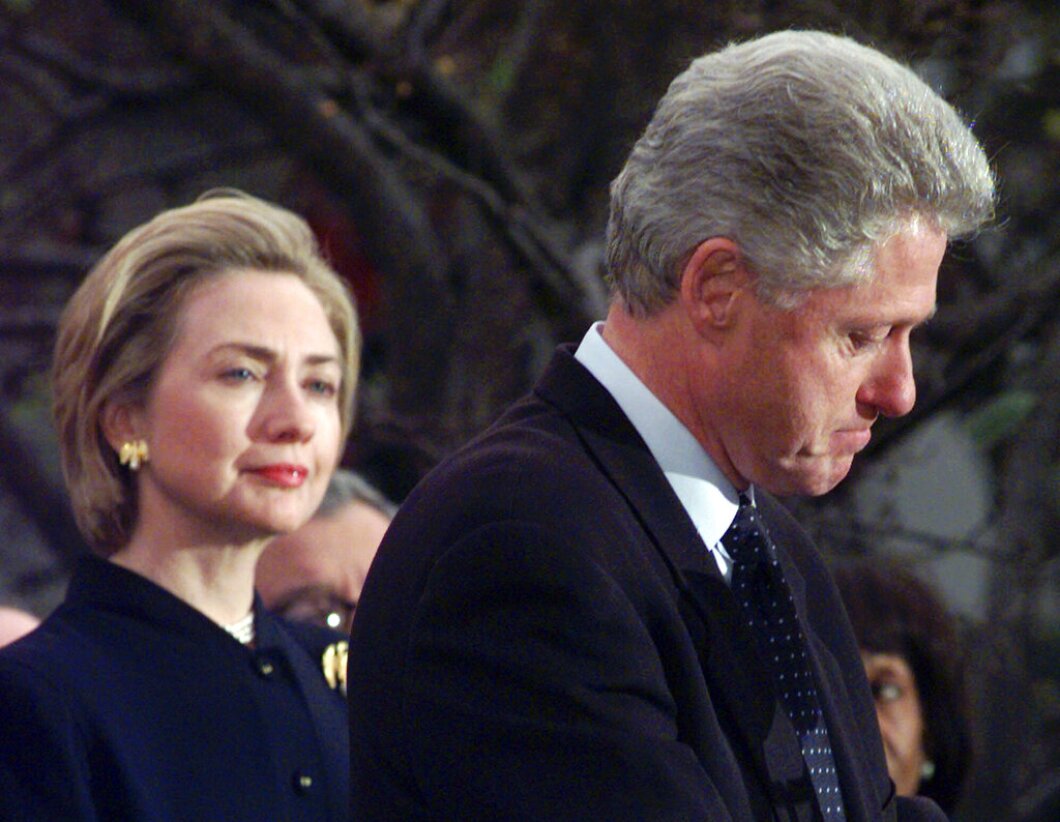
Twenty-five years after former President Bill Clinton was impeached by the House, President Joe Biden is grappling with his own inquiry into allegations of high crimes and misdemeanors.
But although Biden, the White House, and the Biden campaign dismiss Republican allegations about Biden’s family, their business dealings, and accusations of corruption, the Clinton impeachment created the precedent for the Biden inquiry as Congress increasingly devolves into partisan politics.
WHITE HOUSE PROMOTES ‘IMPACTFUL’ BIDENOMICS IN END-OF-YEAR MEMO
Clinton was impeached by the House on Dec. 19, 1998, after special prosecutor Ken Starr‘s investigation into Clinton’s Whitewater real estate deals in Arkansas uncovered his extramartial affair with then-White House intern Monica Lewinsky.
After President Andrew Johnson’s impeachment in 1868 and Richard Nixon’s resignation more than a century later in 1974 to circumvent his own proceedings, the Clinton impeachment was, in part, the result of one party controlling the White House but not the House when the lower chamber was determined to pursue the process. Even Biden called the Clinton impeachment a “partisan lynching” at the time despite criticizing former President Donald Trump for using the same nomenclature to describe his first of two in as many years.
Former Clinton impeachment manager Bob Barr, then a Georgia Republican congressman, defended his proceedings but scrutinized the Biden inquiry.
“The whole process of impeachment in recent years, going back to the Trump impeachments, has become so degraded that it has become nothing more than a political hammer,” Barr told the Washington Examiner.
Barr was adamant that the Clinton impeachment was based on “very clear evidence that he had violated federal criminal law,” including obstruction of justice and perjury, unlike, he contended, the Trump and Biden proceedings.
“There was never any clear evidence of a connection between Trump’s behavior as president and a violation of the law, and now here we are with a Biden impeachment, and, to me, the Republicans have not made a sufficiently strong case linking Biden to violations of federal laws,” Barr said. “If you base your case on evidence that the person has violated criminal laws, it gives you the imprimatur that it’s not just about politics.”

He expressed skepticism, however, of the House Republicans’ inquiry into Biden.
“I haven’t seen the Republicans come forward with anything other than just generalities,” he added. “To me, Republicans or Democrats, whoever it is seeking to impeach a president, if they do it during an election year, it makes it extremely difficult to avoid charges that it is simply about politics … I’m just not sure that the Republicans haven’t just waited too long and talked too much about it without showing where’s the beef?”
Former Maryland Democratic Attorney General Douglas Gansler was against both the Clinton and Biden impeachments and any other proceedings leveraged for “political gain.”
“It started with Bill Clinton, and this is yet another example here with Joe Biden,” he said. “It should be for the equivalent of high crimes and misdemeanors, and what Bill Clinton was accused of doing and what Joe Biden is sort of accused of doing clearly does not rise to that level.”
Gansler described the Biden inquiry as “a clear abuse” of the proceedings and to the “detriment” of Congress, particularly since lawmakers already do not have a “stellar” reputation or credibility. He insisted that Biden’s will not “dent” the president politically because it is “not going to be successful.”
“If anything, it will dent the Republicans for bringing it,” he said. “If there’s somebody who’s committed treason or committed a federal crime or felony, that’s one thing, but … ‘I don’t like somebody so I’m going to go impeach them’ is just not what the government’s set up to do.”
House Speaker Mike Johnson (R-LA) once slammed Trump’s first impeachment over allegations he tied Ukraine funding to his demands that Ukrainian officials investigate Biden’s son Hunter as a “single-party impeachment,” though that summarizes the Biden inquiry. Trump’s second impeachment was over the Jan. 6 attack on the Capitol.
More recently, Sen. Lindsey Graham (R-SC) repeated his concerns with the Biden inquiry, reiterating, “If there were a smoking gun, I think we’d be talking about it.”
“I’m not worried about impeaching the president right now,” he told NBC last weekend. “You know what I’m worried about? Helping the president bring the Middle East to a better spot.”
The White House has sought to undermine the Biden inquiry as a “baseless impeachment stunt,” which has been “mocked, rebuked, and refuted by fact-checkers, columnists, editorial boards, Fox News personalities, and even members of their own party,” before departing Washington, D.C., for the holidays after last week formalizing the investigation with a vote in the House.
CLICK HERE TO READ MORE FROM THE WASHINGTON EXAMINER
“They continue to double down on their year-long wild goose chase that has yielded no evidence of wrongdoing by President Biden but plenty of blowback instead, as they push this political smear campaign at the expense of working on real issues that matter to American families,” White House Office of the General Counsel spokeswoman Sharon Yang wrote in an email.
Representatives for House Oversight Committee Chairman James Comer (R-KY) did not respond to requests for comment.





